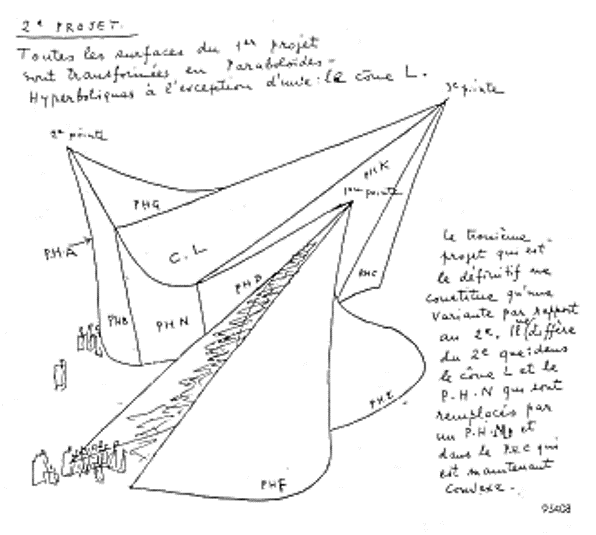R- CoMuse
Kent Law School
BA FUNDED METHODS WORKSHOP:
DISTRIBUTING TIME AND SPACE.
Monday, 7th Nov. 2011. 10.30am, 11.15am-to 5.00pm.
The deployment of co-operatives and mutuals raises questions concerning how we develop methodologies for investigating these socio-economic forms and their legal framings. This challenges the orthodoxies of how we think of property, ownership and benefit, and of the role of law and legal forms. How do we track, and give an account, of these challenges? What issues does this raise for re-engaging with methodologies developed for investigation into other, more conventional, sites?
Co-operatives and mutuals are dependent upon particular accounts of time and space – to understand the ramifications of this is one of the challenges they present, and it throws into relief the question of just how space and time are constructed, deployed, and understood, within law and in other fields of scholarship. Taking this as an entry point, this inter-disciplinary seminar (anthropology, film, geography, law, architecture) addresses ways to think (image, diagram) how spatialities and temporalities are distributed.
There are three ‘back stories’ to this seminar, all of which have informed both how we have set up the day, as well as what we hope will be developed during our meeting together. First, and most obviously, in 2011 the British Academy awarded us a small grant to investigate the development of methodologies for the study of mutuals and co-operatives and similar ‘non-orthodox legal sites’. This seminar is funded from that grant. In these terms, we structured the seminar as an opportunity to introduce strategies and themes from across a range of disciplines which might inform the development of work in this area (or in these ‘sites’) as part of the newly formed R-CoMuSE network of scholars and activists. Second, we argued in our application that socio-legal and jurisprudential scholarship would benefit from being both more informed by work developing in other disciplines, and from using ‘ non-orthodox’ legal sites as a means through which to re-examine some basic presumptions made about law, and legal methods which might have become too entrenched (too ‘presumed’) in much existent legal scholarship. Third, it seems to us that legal scholars have too often approached other disciplines looking for ‘tools’ or ‘methods’ which might be usefully brought back ‘into’ our work, rather than thinking more succinctly about how our own methodologies might be useful to other disciplines – in other words, how we might develop more successful inter- and cross- disciplinary work.
Bringing together these three aspects, a clear theme emerged for this seminar concerned with the extent to which any study of co-ops and mutuals is reliant upon a particular inter-play between space and time. Lawyers are familiar with the construction of spatial and temporal dimensions through the foundational legal forms of contracts and property – in encountering sites which do not conform to the orthodoxies of these forms, we throw into relief the question of just how accounts of space and time and constructed, deployed, and understood, within law, as well as in other fields of scholarship. This is more than examining sites for distributions along the axis of space and time, and more than configurations in space and time – it is about finding ways to think (image, diagram) how spatialities and temporalities are, in themselves, distributed.
Two constituencies have been invited to participate in this seminar – some have a specific interest in the study of co-ops and mutuals, and some have a more general interest in questions of methods. Our hope and anticipation is that the seminar will be fruitful for all of us, and that, in future spaces and times, it will inform the development of our work across a range of disciplines and sites.
Anne Bottomley (a.b.bottomley@kent.ac.uk) and Nathan Moore (nathan.moore@bbk.ac.uk).
Progamme.
10.30 onwards for registration and coffee
11.15 – 11.30 Welcome and Introduction – Anne Bottomley and Nathan Moore.
11.30 – 1.00 Maja Hojer (Copenhagen):‘The Cooperative Ideology, Nepotism and The Market: Some Predicaments in Danish Housing Cooperatives.’
Anne Bottomley (KLS): ‘The People’s Port: Montages of Mutuality.’
Respondent: Melissa Demian (UKC).
1.00 – 1.30 Lunch
1.30 – 3.00 Joe Gerlach (Oxford): ‘Vernacular mappings; affect, virtuality, performance.’
Mark Vacher (Copenhagen): ‘From Space of Production to Production of Space – an analysis of decay and revival of an old factory site.’
Respondent: Margaret Davies (Flinders).
3.00 – 3.15 Tea
3.15 – 4.45 Nathan Moore (BBK and Bartlett):
‘Diagramming the Big Society: Management of Dividuality.’
Charlie Blake: ‘Inhuman Mediations: Neo-baroque cinema and evolutionary alterity’.
Respondent: Andreas Philippopoulos-Mihalopoulos.
4.45 – 5.00 – Round table discussion.

